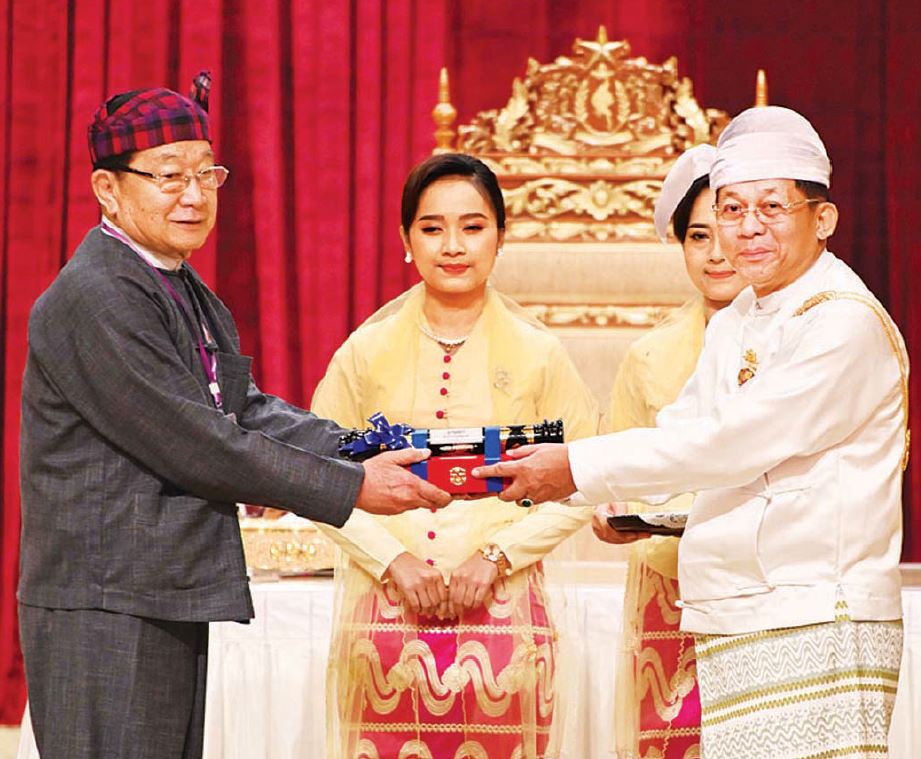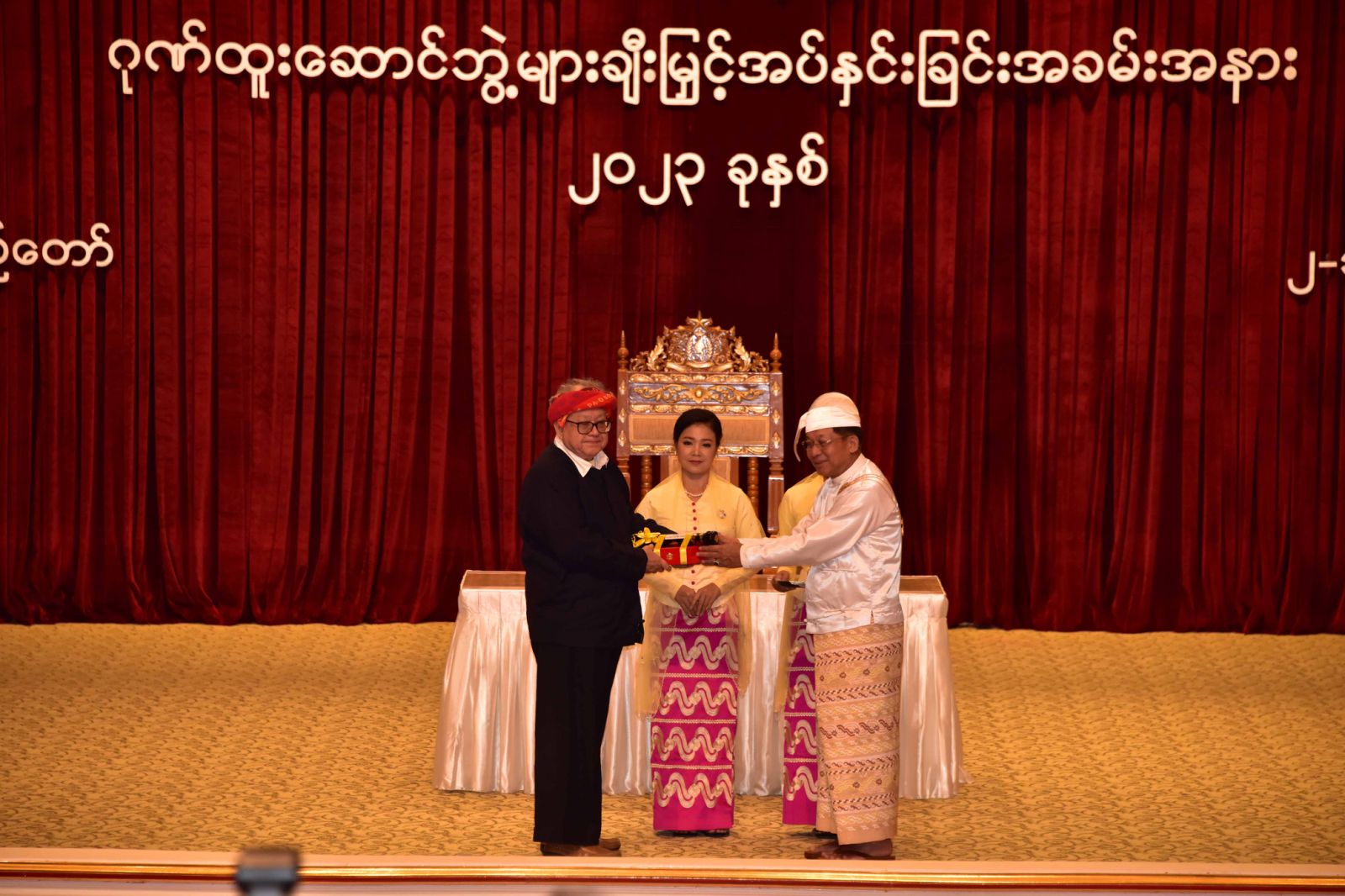A number of prominent ethnic minority leaders have accepted honors from Myanmar’s military regime, even as ethnic armed organizations (EAO) called for solidarity in the revolution against the junta in their New Year messages.
T Khun Myat, a former lower house lawmaker for the now ousted National League for Democracy (NLD) government, is one of those who accepted an honor from junta chief Min Aung Hlaing in a ceremony in the Myanmar capital Naypyitaw on January 2, as did EAO leaders such as Saw Mutu Say Poe and Khun Okkar.
Ethnic Kachin T Khun Myat was a people’s militia leader in Shan State’s Kutkai Township and is also a former member of the military’s proxy Union Solidarity and Development Party (USDP). Trained as a lawyer, he served in the Union Attorney General’s Office and on the commission for drafting the military’s 2008 Constitution.

In 2018, T Khun Myat was elected as lower house speaker under the then NLD government. Despite considerable suspicion about his credibility, due to his close ties to the Myanmar military, he silenced his critics by meting out stony-faced treatment to the military appointees who hold 25 per cent of the seats in Myanmar’s legislature, as well as to his former colleagues in the USDP.
But his true colors were revealed when he continued to attend parliament following the 2021 coup, which saw the NLD government deposed and its leaders jailed.
Observers were surprised that Saw Mutu Say Poe, the leader of the Karen National Union (KNU), the oldest ethnic organization in Myanmar, accepted an honorary title from Min Aung Hlaing. The KNU’s armed wings are actively fighting the regime. Saw Mutu Say Poe did not receive his title in person. Instead, his daughter Naw Sar L Say Poe accepted it on his behalf in Naypyitaw.
Colonel Khun Okkar, patron of the Pa-O National Liberation Organization, did accept his honor in person. He is currently engaged in peace talks with the regime, turning a blind eye to the fact that the murderous military is solely responsible for ongoing hostilities in the country.
The junta described 2022 as the ‘year of peace’, but carried out numerous airstrikes in central Myanmar as well as ethnic areas. It has also declared a one-year unilateral ceasefire with EAOs until the end of 2023.

Another title recipient was Sai Ai Pao, the chairman of the Shan Nationalities Democratic Party (SNDP). He has said publicly that his party will contest the so-called election which the regime plans to hold in August this year. Sai Ai Pao established the SNDP to contest the 2010 general election after his former political party, the Shan Nationalities League for Democracy, decided to boycott the poll. He was one of five ethnic Shan men to receive honors from Min Aung Hlaing in person in Naypyitaw.
Another ethnic Kachin militia leader, Zakhung Ting Ying, who was labelled by junta media as a ‘peace broker’, also received his title in person. He is the leader of the New Democratic Army-Kachin, which came under the control of the military when it converted to a Border Guard Force in 2009 under the army-drafted 2008 constitution. He won an upper house seat in the 2010 general election.
Yup Zaw Khaung, an ethnic Kachin businessman and leader of the Peace-Talk Creation Group, also accepted his title in person. He is a relative by marriage of the junta-appointed Kachin State Chief Minister Khet Htein Nan.
Duwa Lashi La, acting president of the parallel National Unity Government, said in his New Year message that 2023 will see a turning point in Myanmar’s revolution, as the regime faces increased diplomatic isolation and the resistance movement continues to gain momentum.
General N’Ban La, the recently-retired head of the Kachin Independence Organization, said in his New Year message that the military is the common enemy of all the people of Myanmar.
















